This is the transcript of an interview I recently did with a Swiss journal.
In your book “Attack the System” you describe the current ideology of the West as a “totalitarian humanism,” yet you claim to be to the left of Marx (I am referring to a statement you made on the Tom Woods Show). You describe yourself as an anarchist, yet you hold speeches at Richard Spencer’s National Policy Institute. Please tell us: Who is Keith Preston?
I am to the left of Marx in the sense that anarchism was always the left-wing opposition to Marxism. This was true even in the period before the First International when anarchists such as Pierre Joseph Proudhon and Max Stirner would voice their opposition to state-socialism of the kind championed by Marx and his predecessors like Louis Blanc. Marx was so incensed by these attacks from anarchists that he devoted considerable effort to his own counterattacks. For example, much of Marx’s The German Ideology is an attack on Stirner, and Marx’s The Poverty of Philosophy is an attack on Proudhon. It was anarchists such as Mikhail Bakunin that led the opposition to the influence of Marxism in the First International, for which the Bakuninists were expelled. Bakunin was a prophetic opponent of state-socialism and predicted that if the Russian socialist revolutionaries ever gained state power they would become as tyrannical as the czars ever were. Bakunin essentially predicted much of the course of the twentieth century when state-socialist regimes ruled one third of the world’s nations. The anarchists were not only critics of the state, including state-socialism, but were also early critics of imperialism and colonialism during the heyday of these in the nineteenth and twentieth century. Marx and Engels, on the other hand, were champions of imperialism and colonialism, believing these to be historically progressive forces. All of these questions are examples of why I, as an anarchist, am to the left of Karl Marx.
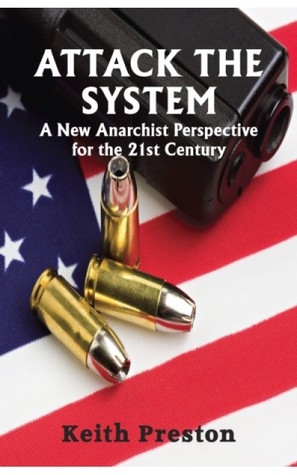 I have spoken to the National Policy Institute on two occasions. I spoke there in 2011, and presented a critique of mass immigration that pointed out that large scale migration of the kind that modern societies are experiencing is something that is being driven by the entire range of power elite institutions at the expense of the native populations and working classes of particular societies. The impact of mass migration is to import a “reserve army of labor,” a nice Marxist term, into the advanced capitalist societies for the purpose of wage suppression and exacerbating social conflict in a way that undermines working class cohesion and solidarity. This has the effect of strengthening the forces of state and capital, while simultaneously depriving the developing and underdeveloped world of human capital thereby undermining development and progress in poor countries. The liberal class supports this process because it allows them to pose as cosmopolitan humanitarians while advancing their own class interests and political interests.
I have spoken to the National Policy Institute on two occasions. I spoke there in 2011, and presented a critique of mass immigration that pointed out that large scale migration of the kind that modern societies are experiencing is something that is being driven by the entire range of power elite institutions at the expense of the native populations and working classes of particular societies. The impact of mass migration is to import a “reserve army of labor,” a nice Marxist term, into the advanced capitalist societies for the purpose of wage suppression and exacerbating social conflict in a way that undermines working class cohesion and solidarity. This has the effect of strengthening the forces of state and capital, while simultaneously depriving the developing and underdeveloped world of human capital thereby undermining development and progress in poor countries. The liberal class supports this process because it allows them to pose as cosmopolitan humanitarians while advancing their own class interests and political interests.
I spoke at the National Policy Institute again in 2015 where I presented a critique of American imperialism as a unique and perhaps unprecedented threat to the survival of the world’s many ancient and unique cultures. These are being absorbed in the homogeneity of cultural imperialism driven by the commercial culture that the United States seeks to impose on the world by means of neoliberal hegemony. This is a process that many specialists in international relations have referred to as “McDonaldization,” “Wal-Martization,” or simply as “Americanization.” During that presentation I focused to a great degree on the Americanization of Europe, which I felt to be appropriate given the Eurocentric orientation of the National Policy Institute, although I could have just as easily focused on Southeast Asia, the Middle East or the Amazon rain forests. But what I said at the National Policy Institute was essentially the same as what I would say if I were speaking to a Communist or Islamist organization. I am interested in networking with all enemies of neoliberal imperialism.
What exactly do you mean when you say “totalitarian humanism”?
Totalitarian humanism is a term that I took from a countercultural writer many years ago who suggested that a phenomenon called “totalitarian humanism” was developing into a third wave of totalitarian political ideology in the developed world. The first of wave was Communism which claimed to be liberating the working class from capitalist oppression. The second wave was Fascism or Nazism which claimed to be advancing the interests of allegedly superior races and nations over allegedly inferior ones. The third wave is Totalitarian Humanism which claims to be advancing the interests of all of humanity, but in reality postulates the same kind of dualistic millenarianism rooted in out-group enmity, and with the same double standards, mendacity, and authoritarianism that were found in these older totalitarian ideologies.
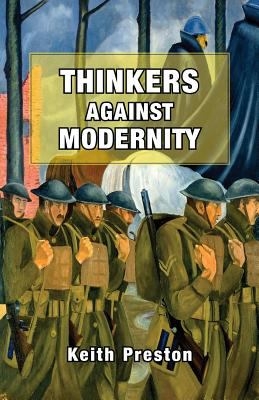 We see many different examples of this. On a localized level, we see examples of the state attempting to micromanage every aspect of life for the purpose of advancing some kind of therapeutic, egalitarian, or ostensibly humanitarian objective. This include everything from banning smoking in pubs, to arresting parents for allowing children to play outside unsupervised, to levying special taxes on foods and beverages for social engineering purposes. We also see examples of the state attempting to subjugate local communities, regions, the private sector, and civil society for the purpose of imposing ostensibly progressive values on all of these competing centers of power. This has the effect of eroding zones of autonomy that serve as a bulwark against the state. We see the example of people being removed from their professional or academic positions for expressing ideas that defy progressive orthodoxy. The worst example is what I call “human rights imperialism,” which involves destroying entire nations such as Libya and Iraq under the guise of rescuing them from oppression.
We see many different examples of this. On a localized level, we see examples of the state attempting to micromanage every aspect of life for the purpose of advancing some kind of therapeutic, egalitarian, or ostensibly humanitarian objective. This include everything from banning smoking in pubs, to arresting parents for allowing children to play outside unsupervised, to levying special taxes on foods and beverages for social engineering purposes. We also see examples of the state attempting to subjugate local communities, regions, the private sector, and civil society for the purpose of imposing ostensibly progressive values on all of these competing centers of power. This has the effect of eroding zones of autonomy that serve as a bulwark against the state. We see the example of people being removed from their professional or academic positions for expressing ideas that defy progressive orthodoxy. The worst example is what I call “human rights imperialism,” which involves destroying entire nations such as Libya and Iraq under the guise of rescuing them from oppression.
In your political evolvement you went from the Christian right to the far left, from there to libertarianism and after that to the militia movement. At the end of this journey you call yourself an anarcho-pluralist. What is the worldview that stands behind this term?
Anarcho-pluralism is a term that I first heard from an anarchist named Sam Dolgoff many years ago. He was a veteran of the classical anarchist movement of the early twenty first century, and had written extensively about the Spanish Civil War. He used the term anarcho-pluralism to describe his embrace of the range of anarchist thought in terms of potential forms of economic self-organization by the working class. I use the term in a similar but more expansive way. It is an umbrella term that I use to describe the entire range of anarchist thought and tendencies, as well as libertarian, decentralist, anti-state, and anti-authoritarian movements and ideologies generally.
In your book you contrast that with what you refer to as “neoliberal imperialism.” Could you elaborate on what you mean by that?
Neoliberal imperialism is a term that is meant to subscribe the system of global plutocratic rule by means of the G20, individual states that are aligned with the major military and trading blocks, the World Bank, the International Monetary Fund, the World Trade Organization, the United Nations, NATO, transnational corporations, and the wider network of financial, business, media, academic, governmental, and nongovernmental organizations that are connected to this system. At present, for example, about 150 corporations control nearly half of the world’s wealth, and about 200 states control virtually all of the world’s territory.
How would an anarcho-pluralist movement look like and what strategy would it apply, especially given the widely varying conceptions different anarchists have of things like ethics and property rights?
Anarcho-pluralism would involve efforts to decentralize systems of political and economic power into the hands of regions, localities, voluntary associations, and other kinds of communities and organizations that are comprised of people pursing their own interests, whether individually or collectively, in a way that is independent of the state or other external institutions. I do not see anarcho-pluralism, or pan-anarchism, as a prescription for any particular kind of organizational forms, specific sets of economic arrangements, positions on social issues, or as anything which favors any set of identity groups or value systems over others. Rather, anarcho-pluralism could include an infinite array of interests of these kinds, from indigenous tribes that prefer a pre-modern existence, to religious monasteries, to hippie communes, to Afro-centric or neo-pagan or LGBTQ or vegan and animal rights oriented communities, to medieval or Star Trek themed communities, to Islamic or Hasidic or Kekistan communities, to rave partiers to those who dream of colonizing space with communities of robots, from nudist colonies to conservative religious communities, or just ordinary, boring centrist communities.
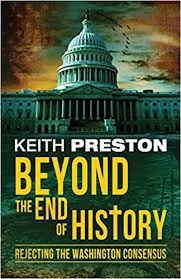 Just as anarcho-pluralism might include an infinite array of values systems and identity or affinity groups, it might also include a similar array of strategies. These could include secession movements that wish to proliferate the number of sovereign countries, regions, and localities, the creation of micronations and independent municipalities, to those building seasteads on the oceans, to anarcho-syndicalist labor unions and worker cooperatives, to mutual aid societies, to the practice of agorist countereconomics, to civil disobedience or independent militias, to alternative currencies, to any kinds of communities, organizations and activities that are functioning independently of the state and which will be the prototypes for the eventual elimination of the state. What I have mentioned are only a few examples.
Just as anarcho-pluralism might include an infinite array of values systems and identity or affinity groups, it might also include a similar array of strategies. These could include secession movements that wish to proliferate the number of sovereign countries, regions, and localities, the creation of micronations and independent municipalities, to those building seasteads on the oceans, to anarcho-syndicalist labor unions and worker cooperatives, to mutual aid societies, to the practice of agorist countereconomics, to civil disobedience or independent militias, to alternative currencies, to any kinds of communities, organizations and activities that are functioning independently of the state and which will be the prototypes for the eventual elimination of the state. What I have mentioned are only a few examples.
What is your biggest critique of the current mainstream anarchism in the United States?
The mainstream anarchist movement in North America is largely a youth subculture rather than a political movement. To the degree that mainstream anarchism is politically serious at all, it largely limits itself to a focus standard left-progressive issues, and largely renders itself to being not much different from the local precinct chapter of the Democratic Party as a result. A much more serious issue with mainstream anarchism involves the fact that most anarchists have yet to fully comprehend Nietzsche’s critique of slave morality or Stirner’s critique of humanism, much less incorporate these ideas into their paradigm. Many dissidents from the dominant slave morality paradigm within the general anarchist milieu often error in the other direction and become reactionaries. An example would be those former libertarians that have embraced the neo-reactionary movement, the alt-right or neo-fascism. I am in favor of the development of a form of anarchism that is in opposition to slave morality but without embracing reaction. I suppose you could say that I represent the post-postmodern revolutionary post-left.
In chapter 1 of “Attack the System” you delve into the philosophical foundations of anarchism and you exclusively name German thinkers: Friedrich Nietzsche, Max Stirner and Ernst Jünger. Let’s go through them: How has Nietzsche laid the foundations for modern-day anarchism and what can he tell us about the crisis of the West?
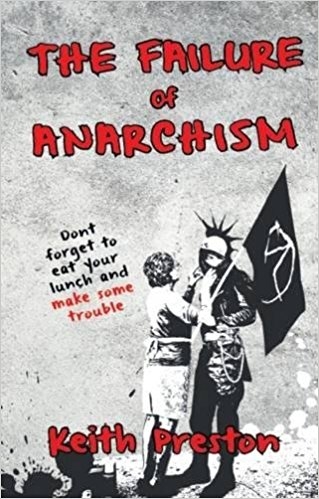 Nietzsche was not an anarchist. What Nietzsche did was issue the most serious reply to anarchists and one that anarchists have yet to address. Nietzsche considered the political Left to be a modernized, secularized version of Christian morality, in the sense of the idea of the suffering just and notions like the least will be the first, and he considered anarchists to be the Left’s version of fundamentalist true believers. This critique is absolutely correct, and this is why so many mainstream anarchists have such a pronounced inclination towards the persecution of anyone they deem insufficiently progressive that have become the modern versions of heretics. This is why we see ostensibly “anarchist” Antifa thugs attacking peaceful people who are engaged in the exercise of free speech. Until anarchists examine this flaw in their own thinking, and make the necessary changes in their own actions, they will never be anything more than a prototype for a new kind of authoritarian statism of the kind that I call “totalitarian humanism.”
Nietzsche was not an anarchist. What Nietzsche did was issue the most serious reply to anarchists and one that anarchists have yet to address. Nietzsche considered the political Left to be a modernized, secularized version of Christian morality, in the sense of the idea of the suffering just and notions like the least will be the first, and he considered anarchists to be the Left’s version of fundamentalist true believers. This critique is absolutely correct, and this is why so many mainstream anarchists have such a pronounced inclination towards the persecution of anyone they deem insufficiently progressive that have become the modern versions of heretics. This is why we see ostensibly “anarchist” Antifa thugs attacking peaceful people who are engaged in the exercise of free speech. Until anarchists examine this flaw in their own thinking, and make the necessary changes in their own actions, they will never be anything more than a prototype for a new kind of authoritarian statism of the kind that I call “totalitarian humanism.”
Nietzsche also thought Western civilization was headed for an existential crisis that was rooted in the loss of traditional cultural, religious, moral and philosophical ideas, and that modern ideologies were an effort to find an appropriate substitute. He correctly surmised that these substitutes would prove to be unsatisfactory and that by the twenty-first century Western civilization would be faced with the crisis of nihilism. The only possible resolution of this crisis, in Nietzsche’s view, was the “transvaluation of values,” which would in turn involve a process of both individual and collective “self-overcoming,” and ultimately “becoming who we are,” once again on both the individual and collective level. I am inclined towards the view that Nietzsche regarded the pre-Socratics, particularly the Sophists, as a kind of prototype for what a post postmodern world might maintain as a philosophical or intellectual foundation. If so, this would represent of a kind of cyclical process that involved a return to a kind of primordial essence. In fact, I am inclined towards the view that this is what Nietzsche meant by his concept of “eternal recurrence.”
How about Stirner?
Stirner was a very similar to thinker to Nietzsche in the sense of recognizing that, as Stirner himself put it, “our atheists are very pious men.” Like Nietzsche, he recognized that humanism of the kind that came out of the Enlightenment was not a rejection of religion or even of Christianity as much as a kind of secularized Christian heresy. I am inclined to think that Nietzsche was influenced by Stirner in an unacknowledged way, and that Nietzsche’s concept of the overman was essentially rooted in Stirner’s idea of a society that consisted of a union of egoists with the idea that the overman would be the product of the union of egoists. However, it is interesting that we have self-proclaimed egoists today who utterly fail to grasp this concept.
And what is Ernst Jüngers contribution?
Ernst Junger’s later work is particularly important for the purposes of cultivating a well-developed philosophical anarchism, especially his novel “Eumeswil” where he introduces the idea of the “Anarch.” During his elder years, Junger was less of a social or political critic, and was instead focused on how the individual might achieve an inner freedom in the face of persistent tyranny that abounds on an external level. His thinking on this question was heavily influenced by Stirner and also resembles certain Buddhist precepts in many ways. The core idea of the Anarch is one that renounces authority on an internal basis even if one does not defy authority on an external basis. The Anarch grants loyalty to nothing but his or her own thoughts and thereby achieves a kind of inward resolution of conflict. However, there is another way in which Junger’s thought is relevant to anarchism and that is his conception of a warrior ethos that stands in opposition to slave morality. An anarchist that was guided by the ideas of Nietzsche, Stirner, or Junger would not be a religious zealot persecuting those who have sinned against slave morality, but an egoist that is both internally self-liberated, and engaged in warfare against external authority as an expression of self-overcoming or becoming who they are.
What is your personal critique of modernity?
Modernity is a model of civilization where traditional institutions have largely been eradicated and replaced by the dominance of the impersonal corporate state that rules as an abstract entity even as its personnel changes. The features of modernity are the public administration bureaucracy, mass society dominated by mass institutions and organizations, the hegemony of commercial values and consumerism with social status largely conferred on the basis of one’s capacity for what Thorstein Veblen called “conspicuous consumption,” technology fused with scientism, therapeutism egalitarianism replacing theocratic traditionalism as the foundation of civil values, sophisticated systems of propaganda promulgated by the mass media and the public relations and advertising industries, the rise of the culture industry, the erosion of intermediary institutions, atomized individualism, and the erosion of individual identity except for that of subject of the state, worker, and consumer. Modernity is essentially a replication of feudalism but within the context of a commercial and technologically driven society where mass bureaucratic institutions assume the role of the new manorial systems.
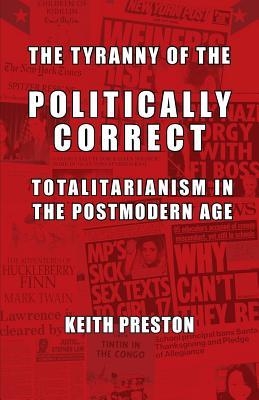 You engage in conversations with all anarchist camps, yet refuse to pick a label for yourself except for “anarchist without adjectives.” Which critique would you voice specifically towards Anarcho-Capitalism?
You engage in conversations with all anarchist camps, yet refuse to pick a label for yourself except for “anarchist without adjectives.” Which critique would you voice specifically towards Anarcho-Capitalism?
Anarcho-Capitalism is the mirror image of Anarcho-Communism in the sense that just as Anarcho-Communism runs the risk of degenerating into Big “C” Communism so does Anarcho-Capitalism runs the risk of degenerating into Big “C” Capitalism and becoming a new kind of plutocratic rule. I would have parallel critiques of virtually any school of anarchist thought, from anarcho-primitivism to anarcho-transhumanism. For example, I am neither an Austrian nor a Marxist when it comes to economic critiques but instead to draw from the better ideas of multiple schools of economic thought. That might include the Marxist or Austrian paradigms in certain ways, but no more so than it would include, for example, the paradigms of behavioral economics or institutional economics. Rather, it is necessary to critique systems of power wherever they appear, and in whatever kind of context, whether political, economic, or social. I am heavily influenced by elite theory in this regard, as well as a range of critics of power from Bertrand Russell to Michel Foucault.
What is your personal brand of anarchism grounded in? Utilitarianism? The self-ownership of one’s own body?
I am neither a utilitarian nor do I subscribe to self-ownership theory which is a derivate of Locke’s natural rights doctrine. I see these ideas as particular to the tradition of English liberalism, which is a fine tradition but not one that represents universal principles. Instead, I regard Anarchist philosophy a representing an intellectual trajectory that can be traced back to Zeno and Diogenes in the West and Zhaung Zhou and Lao-tzu in the East, and which has prototypes in all sorts of indigenous, traditional, and pre-modern societies. Anarchism crystallized as a modern intellectual movement during the time of the Enlightenment with both a left and right wing dimension, with many different cousins and distant relatives, and which continues to evolve and assume new forms over time. Anarchism can be Dorothy Day and Ivan Illich, or it can be the Situationists or the Boston Anarchist Drinking Brigade. It is necessary to move away from singular models and closed systems towards pluralistic models and open-ended systems.
Let’s say you were able to recommend one thinker to the readers of eigentümlich frei, who would make them question their premises. Who would that be?
The thinker that I would recommend would depend on the general political and cultural orientation of the individual I was speaking with. For someone who was more left-leaning, I might recommend Arthur Koestler’s “Darkness at Noon,” or Carl Schmitt’s “The Concept of the Political.” Koestler’s work illustrates very well the legacy of oppression that has historically been perpetrated by ostensibly “progressive” regimes. Schmitt challenges utopian illusions in favor of an uncompromising realism. Leftists of any kind have a bad habit of thinking only conservatives and reactionaries can be tyrants. For someone who was more right-leaning, I might recommend Peter Gay’s “The Enlightenment” or Stefan Zweig’s “The Right to Heresy.” Rightists of any kind have a bad habit of glorifying the past as having been better than it really was. In reality, the past was often quite terrible. One particular thinker whose works I would recommend to both leftists and rightists would be Thomas Szasz, a heterodox psychiatrist who developed a classical liberal-influenced critique of the modern therapeutic state.
What is your favourite anarchist thinker and why?
I can’t say that I have a single favorite anarchist thinker. I am influenced by too many thinkers in anarchist and related traditions to identify one that really stands out. Philosophically, I am the closest to Stirner. I am closest to Proudhon on economics. I very much appreciate Bakunin as a class theorist, particularly his emphasis on the lumpenproletariat, as well as a strategist and critic of Marxism. Kropotkin’s analysis of the historical development of the state is similar to my own. I am in general agreement with Voline’s critique of the limitations of Platformism. I also very much appreciate the American individual-anarchist tradition. The organizational methods employed by the Spanish anarchist movement are worthy of study. There is an English anarchist writer named Peter Marshall that has produced a voluminous history of anarchism that outlines a trajectory that is very similar to the one that I used when describing the anarchist tradition. There is an anarchist anthropologist named Harold Barclay that has examined anarchist trends in pre-modern societies. If I had to pick one of the more well-known figures from history, it would probably be Voltairine de Cleyre since her “anarchism without adjectives” approach is very similar to my own. Another tradition I admire is panarchism which was first formulated by Paul Emile de Puydt, and the leading contemporary proponent of which is John Zube. I am also pleased to see the ongoing proliferation of new forms of anarchism, and the blending of anarchist ideas with those that have been accumulated from a vast range of other traditions. Tendencies such as Green anarchism, Christian anarchism, black anarchism, national-anarchism, anarcha-feminism, indigenous anarchism, post-colonial anarchism, Islamic anarchism, queer anarchism, anarcho-monarchism, anarcho-transhumanism, and geo-anarchism are examples of these ideas.
I’d like to end the interview with the words you chose to start your book with: “To all enemies of the state, whoever they are and wherever they may be.” Any objections?’
No objections at all. I would say that is an excellent way to end any statement or conversation.



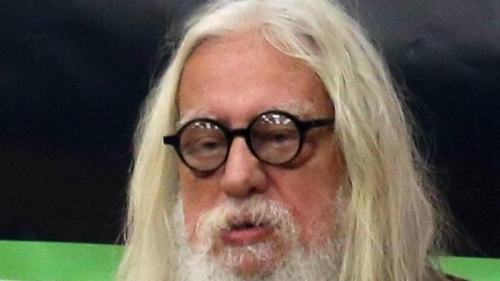
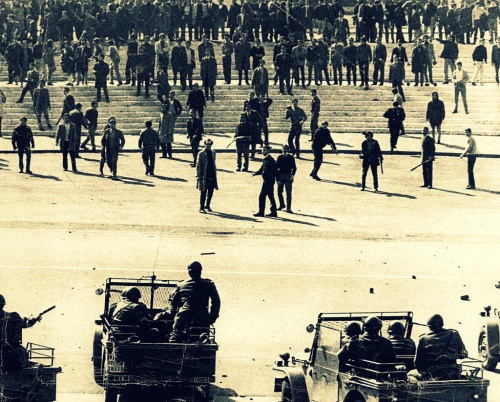
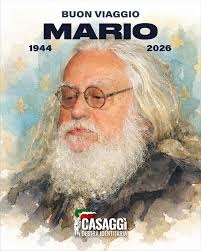 Traducteur de Robert Brasillach, auteur de pièces de théâtre inspirées par l’écrivain japonais Yukio Mishima, Mario Merlino enseigne l’histoire et la philosophie dans un lycée scientifique romain. Au cours de ces années effrénées, Mario Merlino conçoit une théorie politique paradoxale, voire oxymorique : l’anarcho-fascisme qu’il ne faut surtout pas confondre avec le national-anarchisme pensé et promu par le Britannique Troy Southgate, l’Allemand Peter Töpfer, le Néerlandais Tim Mudde et le Français Hans Cany.
Traducteur de Robert Brasillach, auteur de pièces de théâtre inspirées par l’écrivain japonais Yukio Mishima, Mario Merlino enseigne l’histoire et la philosophie dans un lycée scientifique romain. Au cours de ces années effrénées, Mario Merlino conçoit une théorie politique paradoxale, voire oxymorique : l’anarcho-fascisme qu’il ne faut surtout pas confondre avec le national-anarchisme pensé et promu par le Britannique Troy Southgate, l’Allemand Peter Töpfer, le Néerlandais Tim Mudde et le Français Hans Cany.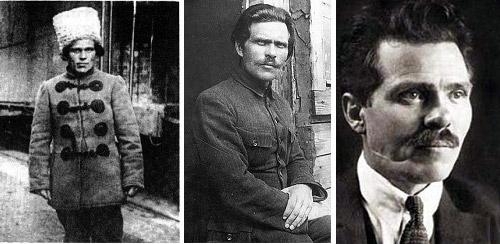
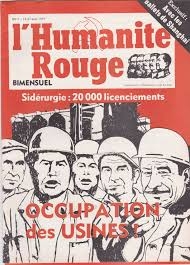 On retrouve des situations semblables dans la France des années 1970 quand les rédacteurs maoïstes de L’Humanité rouge, l’organe officiel du PCMLF (Parti communiste marxiste-léniniste de France), combattent les campagnes trotskystes anti-militaristes, approuvent le programme nucléaire français et soutiennent la réunification de l’Allemagne devenue neutraliste. En Allemagne, le KPD (Parti communiste allemand) adopte un tournant nationaliste en 1932 et s’ouvre à certains membres des SA (Sections d’assaut) déjà déçus par le renoncement implicite des objectifs socialistes du national-socialisme. Dans les dernières années de sa courte vie, le meneur de la contestation étudiante ouest-allemande, Rudi Dutschke (1940 - 1979), prend des positions nationales-neutralistes en faveur de la réunification allemande. D’abord exilé à Cuba pour cause d’activités révolutionnaires, Günter Maschke (1943 – 2022) retourne en Allemagne révolutionnaire-conservateur et va se consacrer à l’étude magistrale de l’œuvre de Carl Schmitt. Enfin, l’inventeur de l’ethno-différentialisme, Henning Eichberg (1942 - 2017), adhère sous l’impulsion de sa seconde épouse au Parti populaire socialiste danois (SF).
On retrouve des situations semblables dans la France des années 1970 quand les rédacteurs maoïstes de L’Humanité rouge, l’organe officiel du PCMLF (Parti communiste marxiste-léniniste de France), combattent les campagnes trotskystes anti-militaristes, approuvent le programme nucléaire français et soutiennent la réunification de l’Allemagne devenue neutraliste. En Allemagne, le KPD (Parti communiste allemand) adopte un tournant nationaliste en 1932 et s’ouvre à certains membres des SA (Sections d’assaut) déjà déçus par le renoncement implicite des objectifs socialistes du national-socialisme. Dans les dernières années de sa courte vie, le meneur de la contestation étudiante ouest-allemande, Rudi Dutschke (1940 - 1979), prend des positions nationales-neutralistes en faveur de la réunification allemande. D’abord exilé à Cuba pour cause d’activités révolutionnaires, Günter Maschke (1943 – 2022) retourne en Allemagne révolutionnaire-conservateur et va se consacrer à l’étude magistrale de l’œuvre de Carl Schmitt. Enfin, l’inventeur de l’ethno-différentialisme, Henning Eichberg (1942 - 2017), adhère sous l’impulsion de sa seconde épouse au Parti populaire socialiste danois (SF).
 del.icio.us
del.icio.us
 Digg
Digg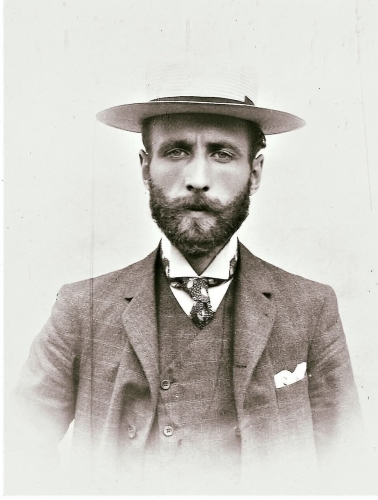
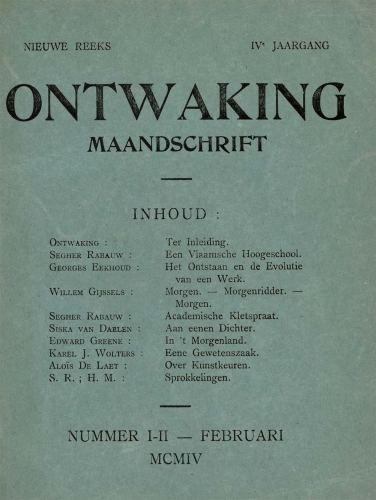
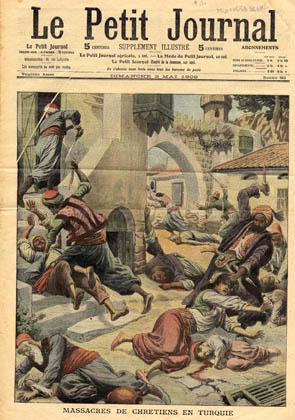
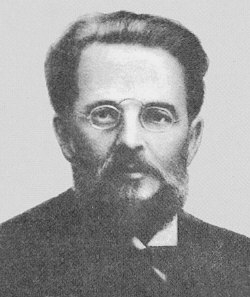
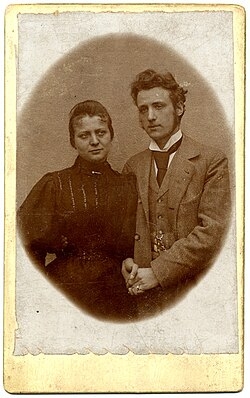
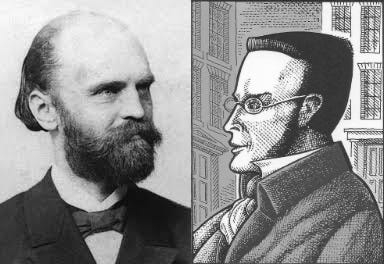
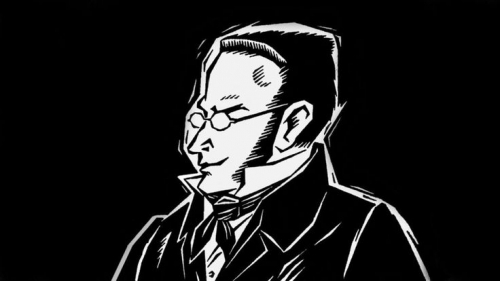
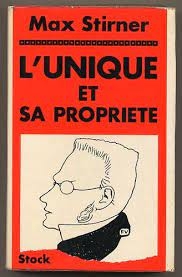
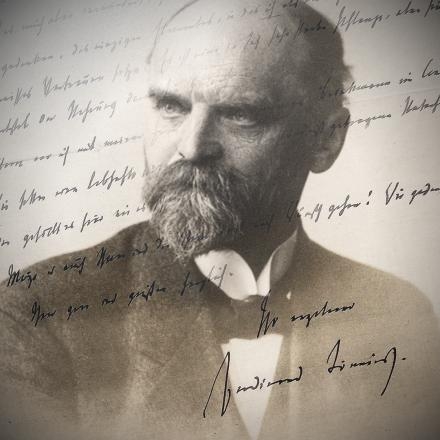
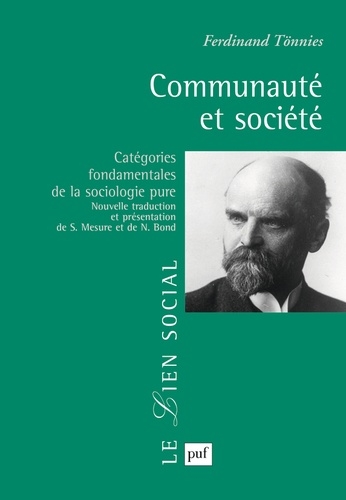
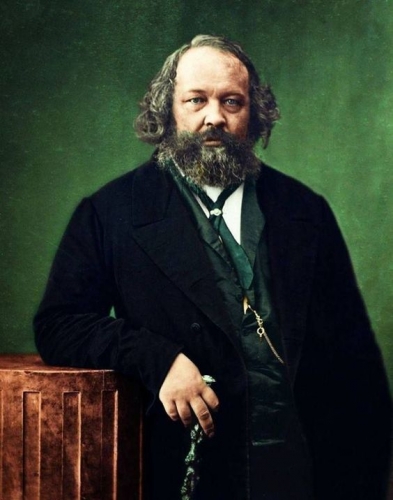
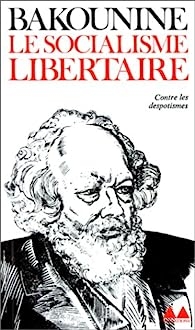 Mikhaïl Alexandrovitch n'était pas le seul représentant de la "nouvelle pensée révolutionnaire". Sa cousine, Catherine, n'était pas en reste. Selon ses souvenirs, dans sa jeunesse, la jeune fille était plutôt une "jeune fille innocente", mais à l'âge adulte, elle est devenue résolue et forte, une véritable manifestation de l'homme libre, comme Bakounine lui-même l'entendait. À force de persévérance, Catherine réussit à se faire engager comme sœur de miséricorde dans la ville assiégée de Sébastopol pendant la guerre de Crimée. "Je devais résister par tous les moyens et avec toute mon habileté au mal que divers fonctionnaires, fournisseurs, etc. infligeaient à nos malades dans les hôpitaux ; et je considérais que c'était mon devoir sacré de lutter et de résister", a déclaré plus tard Catherine pour décrire son véritable objectif. Son esprit rebelle de résistance à la bureaucratie, sa fermeté et sa persévérance ne sont pas passés inaperçus aux yeux de Nikolaï Pirogov : "Chaque jour et chaque nuit, on pouvait la trouver dans la salle d'opération, assistant aux opérations, alors que des bombes et des missiles traînaient autour d'elle. Elle faisait preuve d'une présence d'esprit difficilement compatible avec la nature d'une femme". Qu'est-ce que cela signifie ? Que Bakounine lui-même, mais aussi tous les membres de sa famille, n'étaient pas seulement de fortes personnalités, mais aussi des personnes qui n'avaient pas peur de s'affirmer, des personnes qui aimaient la liberté et la vérité. L'éducation et l'environnement ont beaucoup influencé le futur anarchiste et révolutionnaire.
Mikhaïl Alexandrovitch n'était pas le seul représentant de la "nouvelle pensée révolutionnaire". Sa cousine, Catherine, n'était pas en reste. Selon ses souvenirs, dans sa jeunesse, la jeune fille était plutôt une "jeune fille innocente", mais à l'âge adulte, elle est devenue résolue et forte, une véritable manifestation de l'homme libre, comme Bakounine lui-même l'entendait. À force de persévérance, Catherine réussit à se faire engager comme sœur de miséricorde dans la ville assiégée de Sébastopol pendant la guerre de Crimée. "Je devais résister par tous les moyens et avec toute mon habileté au mal que divers fonctionnaires, fournisseurs, etc. infligeaient à nos malades dans les hôpitaux ; et je considérais que c'était mon devoir sacré de lutter et de résister", a déclaré plus tard Catherine pour décrire son véritable objectif. Son esprit rebelle de résistance à la bureaucratie, sa fermeté et sa persévérance ne sont pas passés inaperçus aux yeux de Nikolaï Pirogov : "Chaque jour et chaque nuit, on pouvait la trouver dans la salle d'opération, assistant aux opérations, alors que des bombes et des missiles traînaient autour d'elle. Elle faisait preuve d'une présence d'esprit difficilement compatible avec la nature d'une femme". Qu'est-ce que cela signifie ? Que Bakounine lui-même, mais aussi tous les membres de sa famille, n'étaient pas seulement de fortes personnalités, mais aussi des personnes qui n'avaient pas peur de s'affirmer, des personnes qui aimaient la liberté et la vérité. L'éducation et l'environnement ont beaucoup influencé le futur anarchiste et révolutionnaire.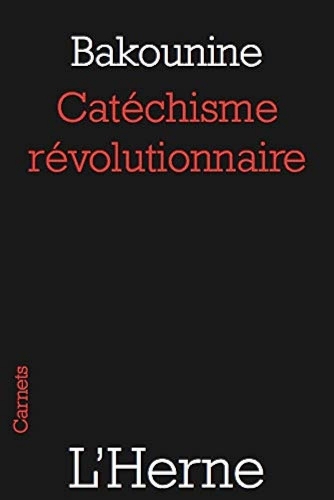
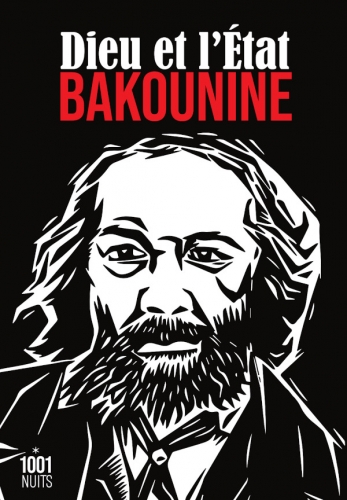
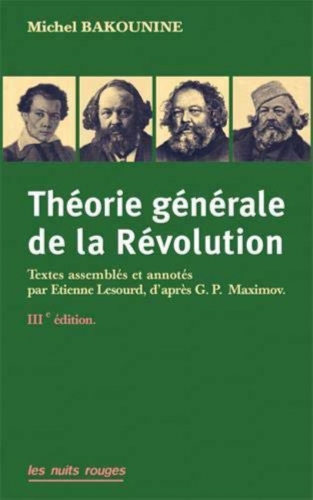
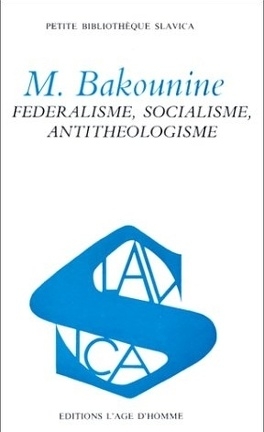 En 1868, Bakounine prépare un projet de "Fraternité internationale", dans lequel il formule les principes de base de l'anarchisme, qui impliquent "la destruction complète de tout État, de toute église, de toute institution religieuse, politique, bureaucratique, judiciaire, financière, policière, économique, universitaire et fiscale".
En 1868, Bakounine prépare un projet de "Fraternité internationale", dans lequel il formule les principes de base de l'anarchisme, qui impliquent "la destruction complète de tout État, de toute église, de toute institution religieuse, politique, bureaucratique, judiciaire, financière, policière, économique, universitaire et fiscale".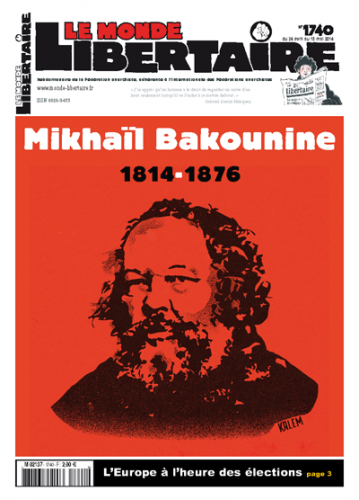
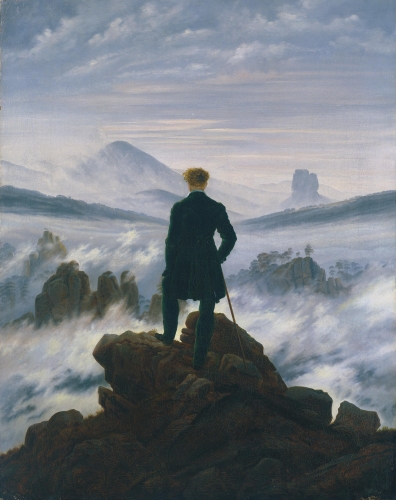

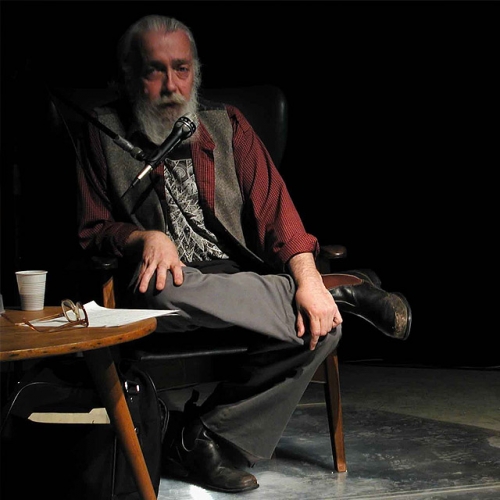
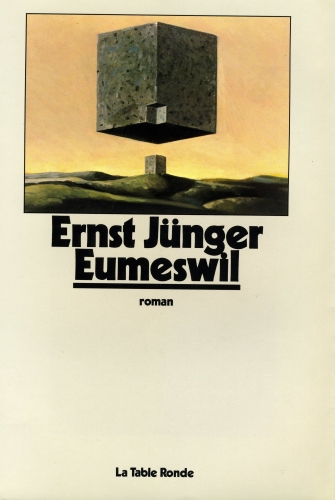
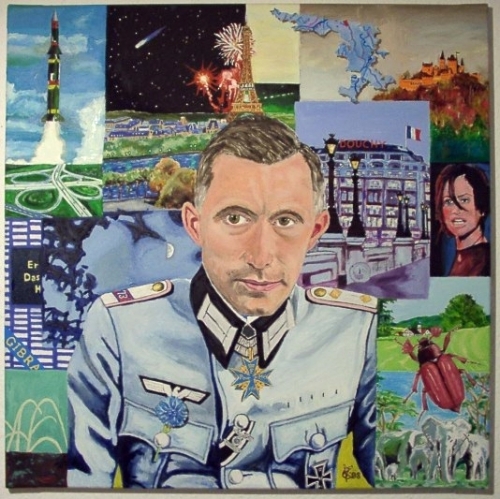
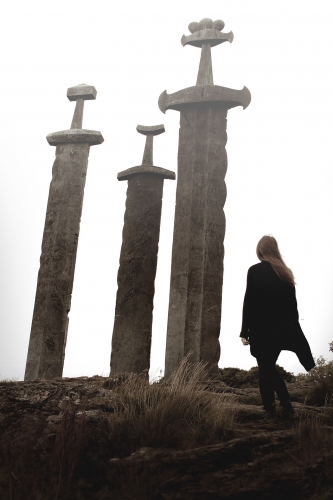
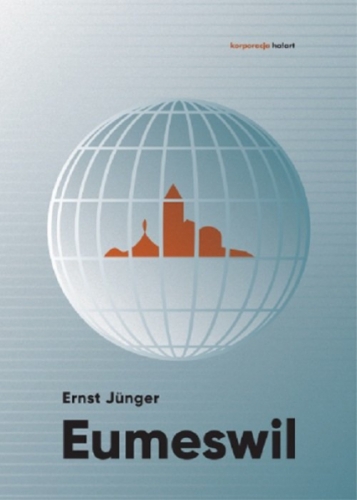
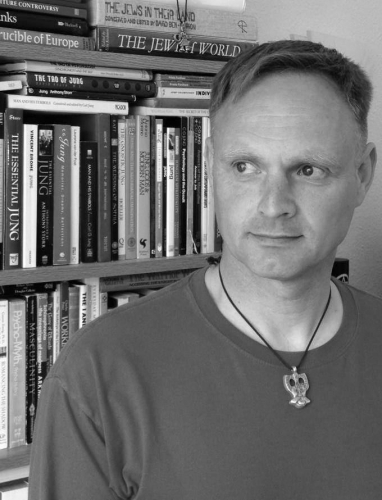
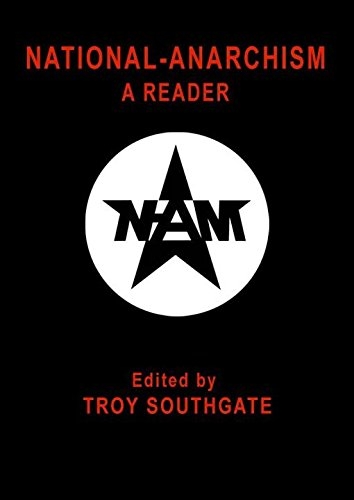
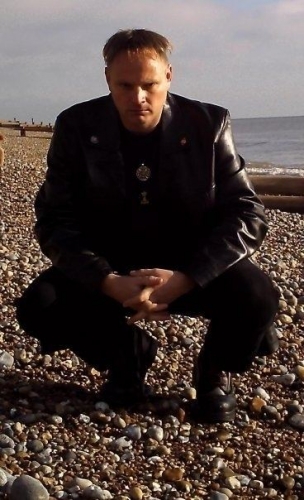
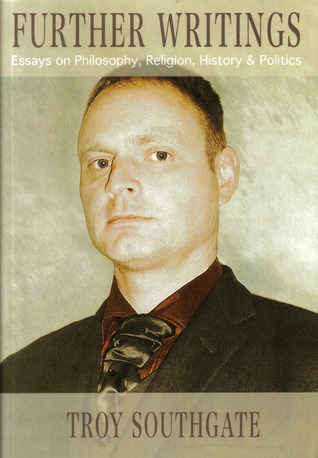
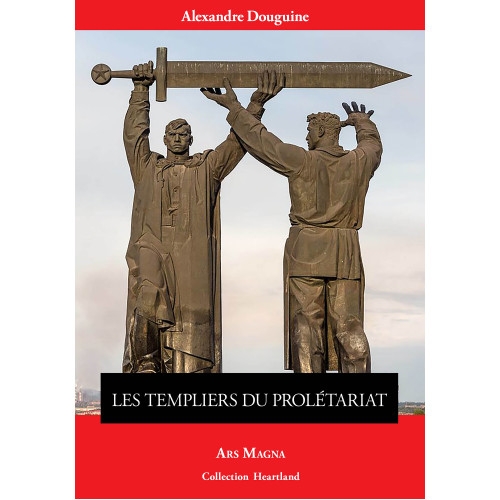
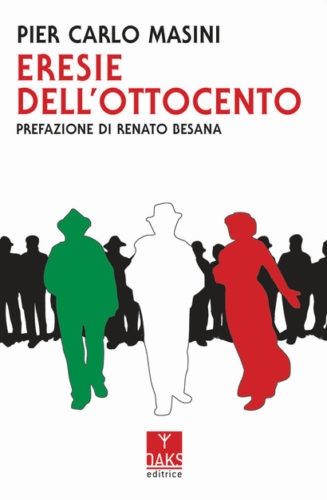
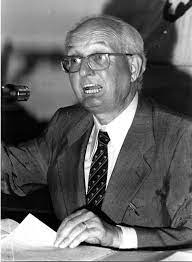
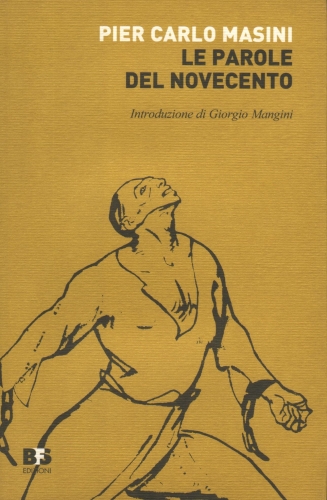
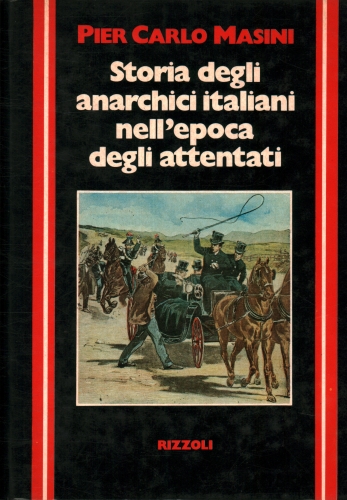
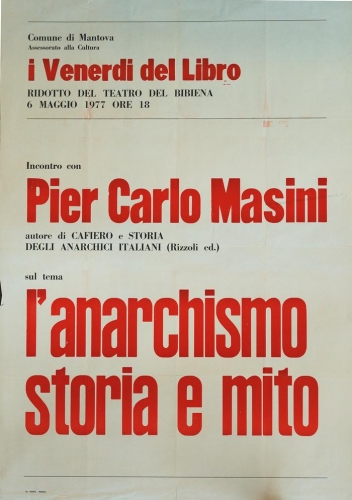
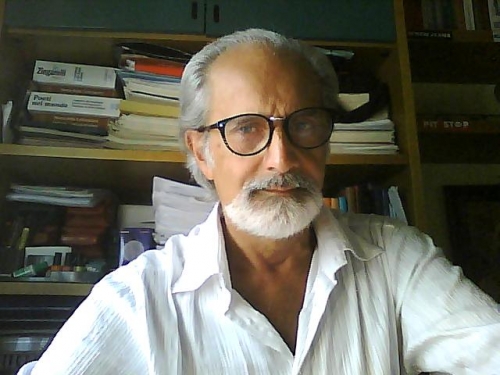
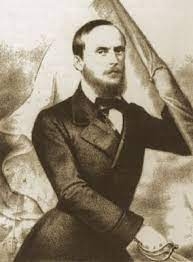
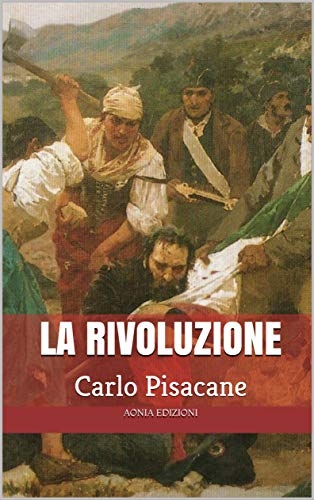
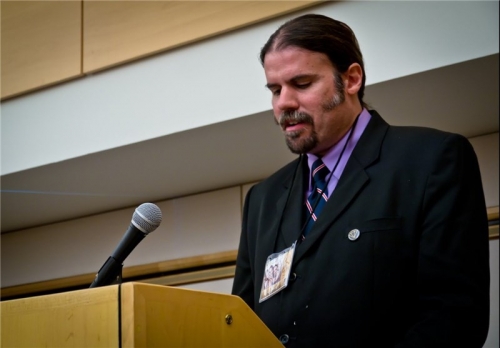
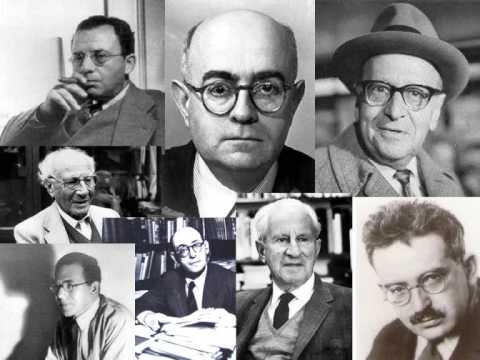
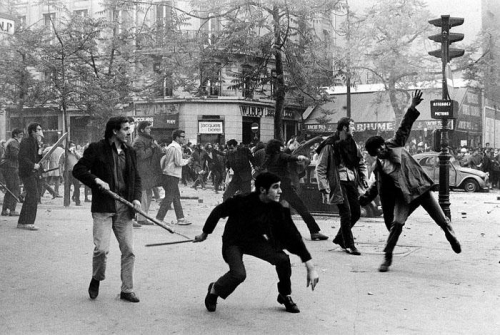
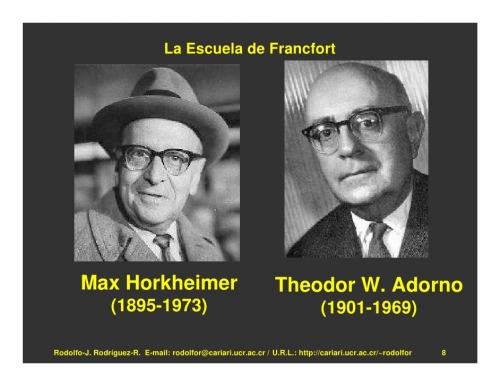
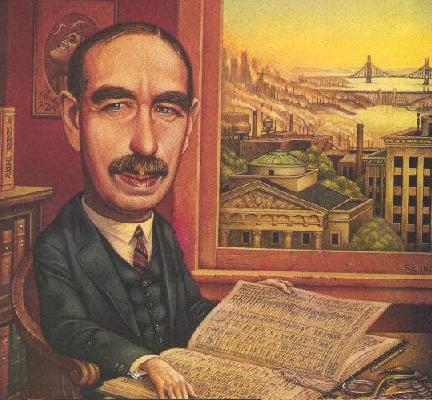
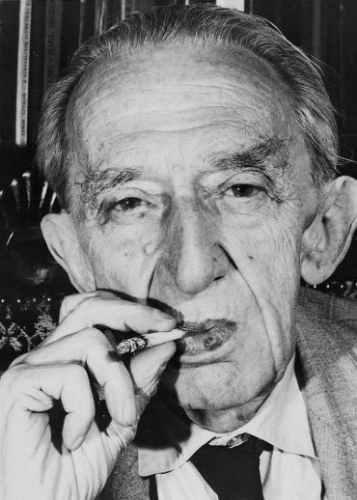 However, the Frankfurt School suggested a different road to the communist paradise than that chosen by Lenin and Stalin in Soviet Russia. The direct intellectual precursors of the Frankfurt School, the Italian Antonio Gramsci (1891 – 1937) and the Hungarian Georg Lukács (1885 – 1971) (photo), had recognized that further west in Europe there was an obstacle on this path which could not be eliminated by physical violence and terror: the private, middle class, classical liberal bourgeois culture based on Christian values. These, they concluded, needed to be destroyed by infiltration of the institutions. Their followers have succeeded in doing so. The sorcerer's apprentices of the Frankfurt School conjured up an army of hobgoblins who empty their buckets over us every day. Instead of water, the buckets are filled with what Lukács had approvingly labelled ‘cultural terrorism.’
However, the Frankfurt School suggested a different road to the communist paradise than that chosen by Lenin and Stalin in Soviet Russia. The direct intellectual precursors of the Frankfurt School, the Italian Antonio Gramsci (1891 – 1937) and the Hungarian Georg Lukács (1885 – 1971) (photo), had recognized that further west in Europe there was an obstacle on this path which could not be eliminated by physical violence and terror: the private, middle class, classical liberal bourgeois culture based on Christian values. These, they concluded, needed to be destroyed by infiltration of the institutions. Their followers have succeeded in doing so. The sorcerer's apprentices of the Frankfurt School conjured up an army of hobgoblins who empty their buckets over us every day. Instead of water, the buckets are filled with what Lukács had approvingly labelled ‘cultural terrorism.’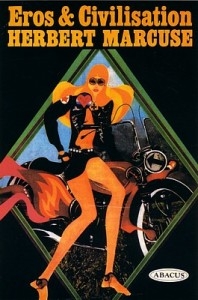 The sorcerer's apprentices of the Frankfurt School dreamt of a communist paradise on earth. Initially, among the hard left they were the only ones aware of the fact that this brutal path to paradise would fail. With the construction of the Berlin Wall in 1961, however, this failure was obvious to all. This was the New Left’s moment. It was only then that they got any traction and noticeable response. At least in Western Europe. In the US, this moment of truth may have come a little later. Gary North contends in his book ‘Unholy Spirits’ that John F. Kennedy’s death was “the death rattle of the older rationalism.” A few weeks later, Beatlemania came to America. However, the appearance of the book ‘Silent Spring’ by Rachel Carson in September 1962, which heralded the start of environmentalism, points to the Berlin Wall as the more fundamental game changer in the West. A few years later, the spellbound hobgoblins began their long march through the institutions.
The sorcerer's apprentices of the Frankfurt School dreamt of a communist paradise on earth. Initially, among the hard left they were the only ones aware of the fact that this brutal path to paradise would fail. With the construction of the Berlin Wall in 1961, however, this failure was obvious to all. This was the New Left’s moment. It was only then that they got any traction and noticeable response. At least in Western Europe. In the US, this moment of truth may have come a little later. Gary North contends in his book ‘Unholy Spirits’ that John F. Kennedy’s death was “the death rattle of the older rationalism.” A few weeks later, Beatlemania came to America. However, the appearance of the book ‘Silent Spring’ by Rachel Carson in September 1962, which heralded the start of environmentalism, points to the Berlin Wall as the more fundamental game changer in the West. A few years later, the spellbound hobgoblins began their long march through the institutions.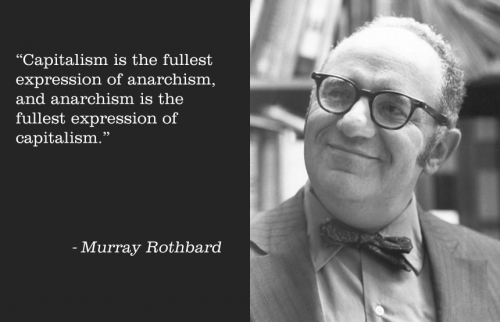
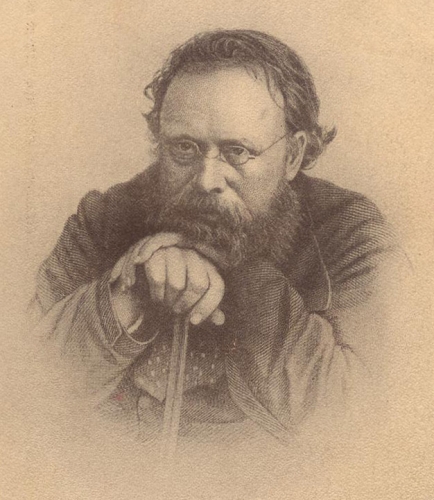

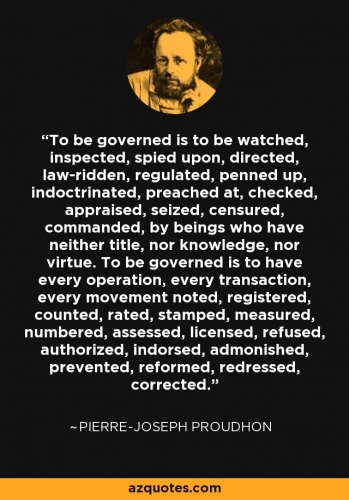
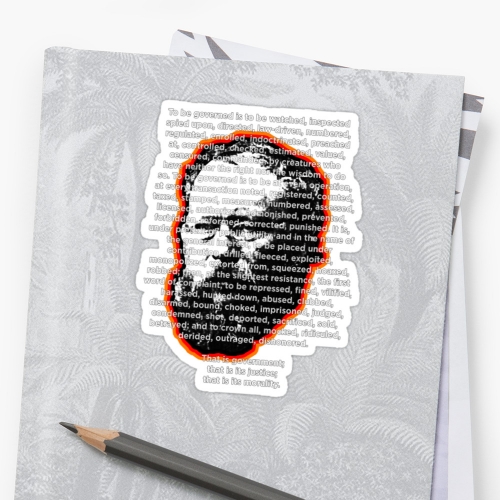
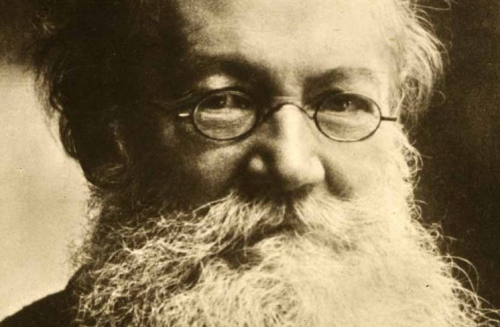
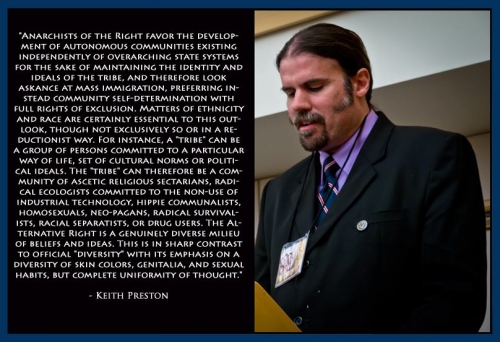
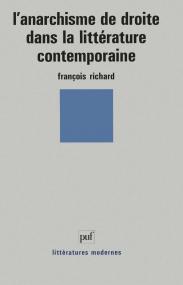 The French intellectual historian Francois Richard identified three primary currents within the wider philosophical tradition of anarchism. The first of these is the classical socialist-anarchism that I have previously described that has as its principal focus an orientation towards social justice and uplifting the downtrodden. A second species of anarchism is the radical individualism of Stirner and the English and American libertarians, a perspective that posits individual liberty as the highest good. And still a third tradition is a Nietzsche-influenced aristocratic radicalism, or what the French call “anarchism of the Right” which places its emphasis not only on liberty but on merit, excellence, and the preservation of high culture.
The French intellectual historian Francois Richard identified three primary currents within the wider philosophical tradition of anarchism. The first of these is the classical socialist-anarchism that I have previously described that has as its principal focus an orientation towards social justice and uplifting the downtrodden. A second species of anarchism is the radical individualism of Stirner and the English and American libertarians, a perspective that posits individual liberty as the highest good. And still a third tradition is a Nietzsche-influenced aristocratic radicalism, or what the French call “anarchism of the Right” which places its emphasis not only on liberty but on merit, excellence, and the preservation of high culture.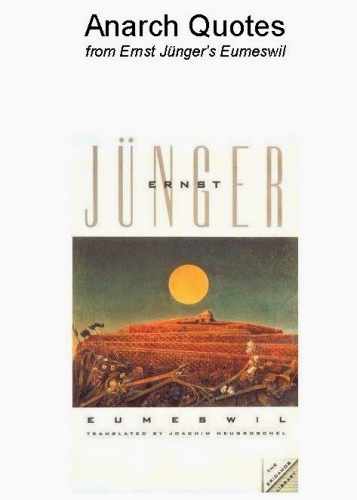 Perhaps the most famous intellectual associated with the Conservative Revolution was Ernst Junger, a veteran of World War One who became famous after publishing his war diaries in Weimar Germany under the title “Storms of Steel.” Much later in life, Junger published a work called “Eumeswil” which postulates the concept of the “Anarch,” a concept that is modeled on Max Stirner’s idea of the “Egoist.” According to Junger’s philosophy, an “Anarch” does not necessarily engage in outward revolt against institutionalized authority. Instead, the revolt occurs on an inward basis, and the individual is able to retain an inner psychic freedom by means of detachment from all external values and an inward retreat into one’s self. In some ways, this is a philosophy that is similar to currents within Buddhism and other Eastern philosophies.
Perhaps the most famous intellectual associated with the Conservative Revolution was Ernst Junger, a veteran of World War One who became famous after publishing his war diaries in Weimar Germany under the title “Storms of Steel.” Much later in life, Junger published a work called “Eumeswil” which postulates the concept of the “Anarch,” a concept that is modeled on Max Stirner’s idea of the “Egoist.” According to Junger’s philosophy, an “Anarch” does not necessarily engage in outward revolt against institutionalized authority. Instead, the revolt occurs on an inward basis, and the individual is able to retain an inner psychic freedom by means of detachment from all external values and an inward retreat into one’s self. In some ways, this is a philosophy that is similar to currents within Buddhism and other Eastern philosophies.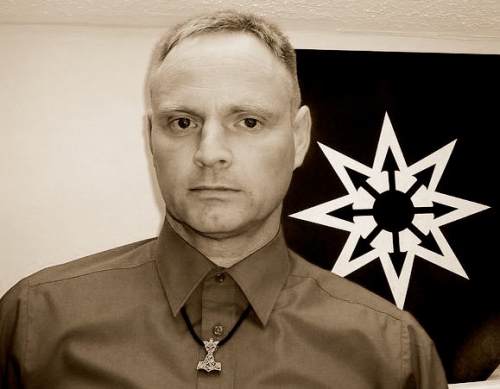
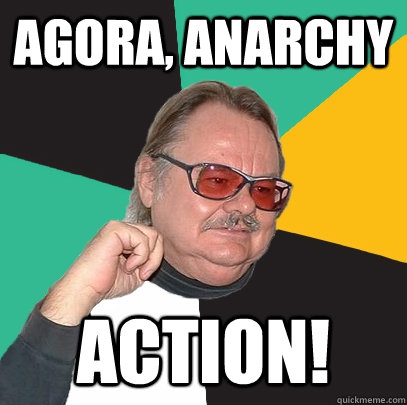 It is also interesting to note that some of the late twentieth century proponents of individualist anarchism such as James J. Martin and Samuel E. Konkin III, the founder of a tendency within libertarianism known as agorism, were also proponents of Holocaust revisionism. Indeed, when I was doing research on the modern libertarian movement, I discovered that Holocaust revisionism was actually popular among libertarians in the 1970s, not on anti-Semitic or pro-Nazi grounds, but out of a desire to defend the original isolationist case against World War Two. Konkin himself was actually associated with the Institute for Historical Review at one point.
It is also interesting to note that some of the late twentieth century proponents of individualist anarchism such as James J. Martin and Samuel E. Konkin III, the founder of a tendency within libertarianism known as agorism, were also proponents of Holocaust revisionism. Indeed, when I was doing research on the modern libertarian movement, I discovered that Holocaust revisionism was actually popular among libertarians in the 1970s, not on anti-Semitic or pro-Nazi grounds, but out of a desire to defend the original isolationist case against World War Two. Konkin himself was actually associated with the Institute for Historical Review at one point.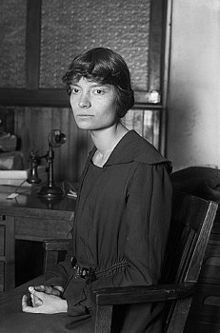 Dorothy Day was an American radical, a religious pacifist, and advocate of social justice, who combined anarchism and Catholic traditionalism. She was the founder of the Catholic Worker movement, and considered herself to be a supporter of both the Industrial Workers of the World and the Vatican.
Dorothy Day was an American radical, a religious pacifist, and advocate of social justice, who combined anarchism and Catholic traditionalism. She was the founder of the Catholic Worker movement, and considered herself to be a supporter of both the Industrial Workers of the World and the Vatican.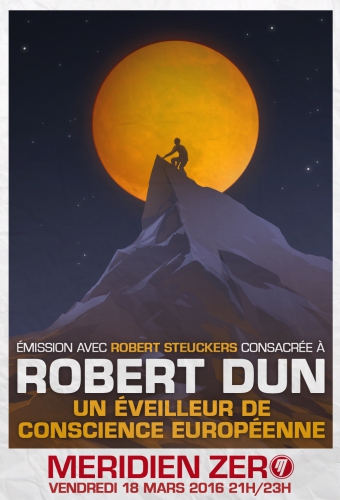
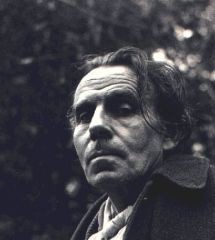 El concepto de anarquismo derechista parece paradójico, de hecho, oximorónico, partiendo desde la suposición de que todos los puntos de vista políticos “derechistas” incluyen una evaluación particularmente alta del principio de orden… En efecto, el anarquismo de derecha ocurre sólo en circunstancias excepcionales, cuando la hasta ahora velada afinidad entre el anarquismo y el conservadurismo puede hacerse aparente.
El concepto de anarquismo derechista parece paradójico, de hecho, oximorónico, partiendo desde la suposición de que todos los puntos de vista políticos “derechistas” incluyen una evaluación particularmente alta del principio de orden… En efecto, el anarquismo de derecha ocurre sólo en circunstancias excepcionales, cuando la hasta ahora velada afinidad entre el anarquismo y el conservadurismo puede hacerse aparente.  El rechazo de las jerarquías éticas actuales, la preparación para ser “no apto, en el sentido más profundo de la palabra, para vivir” (Flaubert), revelan puntos comunes de referencia del dandy con el anarquismo; su estudiada frialdad emocional, su orgullo y su aprecio por la sastrería fina y los modales, así como la pretensión de constituir “un nuevo tipo de aristocracia” (Charles Baudelaire), representan la proximidad del dandy a la derecha política. A esto se suma la tendencia de los dandies políticamente inclinados a declarar simpatía a la Revolución Conservadora o a sus precursores, como por ejemplo Maurice Barrès en Francia, Gabriele d’Annunzio en Italia, Stefan George o Arthur Möller van den Bruck en Alemania. El autor japonés Yukio Mishima pertenece a los seguidores tardíos de esta tendencia.
El rechazo de las jerarquías éticas actuales, la preparación para ser “no apto, en el sentido más profundo de la palabra, para vivir” (Flaubert), revelan puntos comunes de referencia del dandy con el anarquismo; su estudiada frialdad emocional, su orgullo y su aprecio por la sastrería fina y los modales, así como la pretensión de constituir “un nuevo tipo de aristocracia” (Charles Baudelaire), representan la proximidad del dandy a la derecha política. A esto se suma la tendencia de los dandies políticamente inclinados a declarar simpatía a la Revolución Conservadora o a sus precursores, como por ejemplo Maurice Barrès en Francia, Gabriele d’Annunzio en Italia, Stefan George o Arthur Möller van den Bruck en Alemania. El autor japonés Yukio Mishima pertenece a los seguidores tardíos de esta tendencia.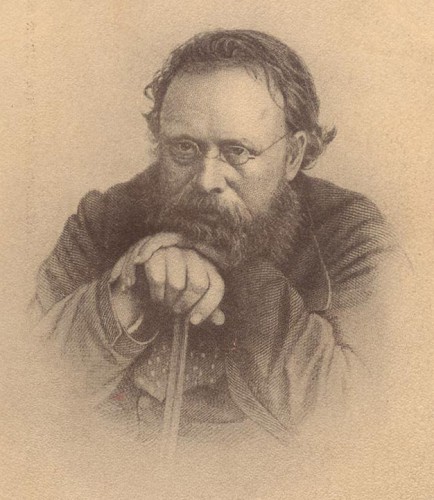
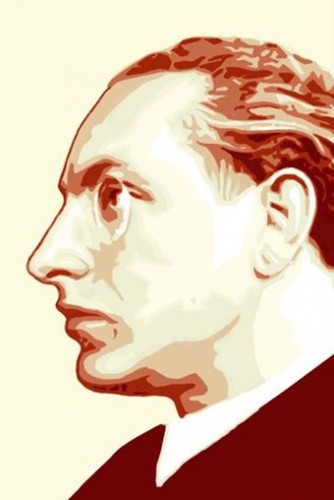 Como todo pensamiento político, el anarquismo ha tenido diferentes puntos de vista. Una importante cantidad de intelectuales sitúan al nacimiento del anarquismo en el siglo XIX, cuando podemos hallar en la Metamorfosis de Ovidio, una mención a un sistema político de similares características que se lo hallaría en el inicio de una Edad de Oro, donde no habría leyes, jueces ni nada que se le parezca para sancionar a los ciudadanos, puesto que entre ellos existía una visión del mundo similar. Asimismo, no podemos olvidar a las comunidades anarquistas como los seguidores del Patriarca Gnóstico Carpócrates de Alejandría que fundó comunidades cristianas en el norte de Africa y en España en el siglo II. Diferente al anarquismo filosófico del siglo XIX, que sitúa al anarquismo al final de la historia humana, como un proceso evolutivo, tal como fue formulado de manera similar el paraíso comunista de Karl Marx.
Como todo pensamiento político, el anarquismo ha tenido diferentes puntos de vista. Una importante cantidad de intelectuales sitúan al nacimiento del anarquismo en el siglo XIX, cuando podemos hallar en la Metamorfosis de Ovidio, una mención a un sistema político de similares características que se lo hallaría en el inicio de una Edad de Oro, donde no habría leyes, jueces ni nada que se le parezca para sancionar a los ciudadanos, puesto que entre ellos existía una visión del mundo similar. Asimismo, no podemos olvidar a las comunidades anarquistas como los seguidores del Patriarca Gnóstico Carpócrates de Alejandría que fundó comunidades cristianas en el norte de Africa y en España en el siglo II. Diferente al anarquismo filosófico del siglo XIX, que sitúa al anarquismo al final de la historia humana, como un proceso evolutivo, tal como fue formulado de manera similar el paraíso comunista de Karl Marx.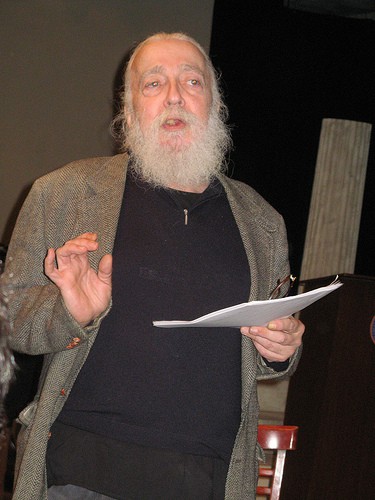 Se torna dificultoso poder definir el concepto del anarquismo ontológico, puesto que es una forma de encarar la realidad, donde no se necesitan teorías que cierren en si mismas, sino acciones que tienden a despojar al hombre de preconceptos modernos. El anarquismo ontológico es un desafío abierto a la sociedad actual, donde el Yo es puesto a prueba, para ver si es capaz de cuestionarse ciertos comportamientos y pensamientos que se manifiestan mecánicamente. Su lenguaje principal, es lo que Hakim Bey denomina el “terrorismo poético”, una forma brusca pero profunda de rechazar las convenciones de toda sociedad organizada en torno a ilusiones.
Se torna dificultoso poder definir el concepto del anarquismo ontológico, puesto que es una forma de encarar la realidad, donde no se necesitan teorías que cierren en si mismas, sino acciones que tienden a despojar al hombre de preconceptos modernos. El anarquismo ontológico es un desafío abierto a la sociedad actual, donde el Yo es puesto a prueba, para ver si es capaz de cuestionarse ciertos comportamientos y pensamientos que se manifiestan mecánicamente. Su lenguaje principal, es lo que Hakim Bey denomina el “terrorismo poético”, una forma brusca pero profunda de rechazar las convenciones de toda sociedad organizada en torno a ilusiones.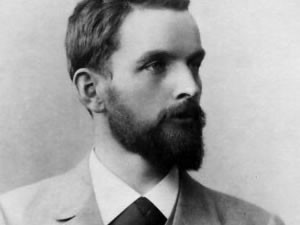 Silvio Gesell war ein nonkonformistischer Ökonom. Er nahm zusammen mit Figuren sowie Niekisch, Mühsam und Landauer an der Räteregierung Bayerns teil. Der gebürtige Sankt-Vikter entwickelte in seinem wichtigsten Buch “Die natürliche Ordnung” ein Projekt der Umverteilung des Bodens, damit ein Jeder selbständig-autonom in totaler Unabhängigkeit von abstrakten Strukturen leben konnte. Günter Bartsch nennt ihn ein “Akrat”, d.h. ein Mensch, der frei von jeder Bevormündung ist, sei diese politischer, religiöser oder verwaltungsartiger Natur. Für Klaus Schmitt, der Gesell für die deutsche nonkonforme Linke wiederentdeckt (aber nicht kritiklos), ist der räterepublikanische Akrat ein der schärfsten Kritiker der “Macht Mammons”. Diese Allmacht wollte Gesell mit der Einführung eines “Schwundgeldes” bzw. einer “Freigeld-Lehre” zerschmettern. Unter “Schwundgeld” verstand er ein Geld, das man nicht thesaurisieren konnte und für das keine Zinsen gezahlt wurden. Im Gegenteil war für Gesell die Hortung von Geldwerten die Hauptsünde. Geld, das nicht in Sachen (Maschinen, Geräte, Technik, Erziehung, Boden, Vieh, usw.) investiert wird, mußte durch moralischen und ökonomischen Zwang an Wert verlieren. Solche Ideen entwickelten auch der Vater des kanadischen und angelsächsichen Distributismus, C. H. Douglas, und der Dichter Ezra Pound, der in den amerikanischen Regierung ein Instrument des Teufels Mammon sah. Douglas entwickelte distributistische Bauern-Projekte in Kanada, die teilweise noch heute existieren. Pound drückte seinen Dichterhaß gegen Geld- und Bankwesen, indem er die italienischen “Saló-Republik” am Ende des Krieges unterstütze. Pound versuchte, seine amerikanische Landgenossen zu überzeugen, keinen Krieg gegen Mussolini und das spätfaschistischen Italien zu führen. Nach 1945, wurde er in den VSA zwölf Jahre lang in einer Irrenanstalt eingesperrt. Er kam trotzdem aus dieser Hölle ungebrochen zurück und ging bei seiner Dochter Mary de Rachewiltz in Südtirol wohnen, wo er 1972 starb.
Silvio Gesell war ein nonkonformistischer Ökonom. Er nahm zusammen mit Figuren sowie Niekisch, Mühsam und Landauer an der Räteregierung Bayerns teil. Der gebürtige Sankt-Vikter entwickelte in seinem wichtigsten Buch “Die natürliche Ordnung” ein Projekt der Umverteilung des Bodens, damit ein Jeder selbständig-autonom in totaler Unabhängigkeit von abstrakten Strukturen leben konnte. Günter Bartsch nennt ihn ein “Akrat”, d.h. ein Mensch, der frei von jeder Bevormündung ist, sei diese politischer, religiöser oder verwaltungsartiger Natur. Für Klaus Schmitt, der Gesell für die deutsche nonkonforme Linke wiederentdeckt (aber nicht kritiklos), ist der räterepublikanische Akrat ein der schärfsten Kritiker der “Macht Mammons”. Diese Allmacht wollte Gesell mit der Einführung eines “Schwundgeldes” bzw. einer “Freigeld-Lehre” zerschmettern. Unter “Schwundgeld” verstand er ein Geld, das man nicht thesaurisieren konnte und für das keine Zinsen gezahlt wurden. Im Gegenteil war für Gesell die Hortung von Geldwerten die Hauptsünde. Geld, das nicht in Sachen (Maschinen, Geräte, Technik, Erziehung, Boden, Vieh, usw.) investiert wird, mußte durch moralischen und ökonomischen Zwang an Wert verlieren. Solche Ideen entwickelten auch der Vater des kanadischen und angelsächsichen Distributismus, C. H. Douglas, und der Dichter Ezra Pound, der in den amerikanischen Regierung ein Instrument des Teufels Mammon sah. Douglas entwickelte distributistische Bauern-Projekte in Kanada, die teilweise noch heute existieren. Pound drückte seinen Dichterhaß gegen Geld- und Bankwesen, indem er die italienischen “Saló-Republik” am Ende des Krieges unterstütze. Pound versuchte, seine amerikanische Landgenossen zu überzeugen, keinen Krieg gegen Mussolini und das spätfaschistischen Italien zu führen. Nach 1945, wurde er in den VSA zwölf Jahre lang in einer Irrenanstalt eingesperrt. Er kam trotzdem aus dieser Hölle ungebrochen zurück und ging bei seiner Dochter Mary de Rachewiltz in Südtirol wohnen, wo er 1972 starb. 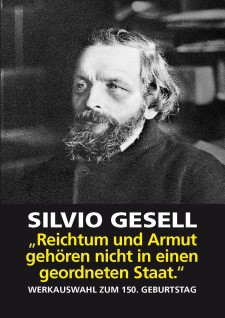 Neben seiner ökonomischen Lehren über das Schwund- und Freigeld, theorisierte Gesell einen Anarchofeminismus, wobei er besonders die Kinder und die Frauen gegen männliche Ausbeutung schützen wollte. Diese Interpretation des matriarchalischen Archetyp implizierte eine ziemlich scharfe Kritik des Vaterrechts, der in seinen Augen die Position der Kinder in der Gesellschaft besonders labil machte. Insofern war Gesell ein Vorfechter der Kinderrechte. Praktish bedeutete dieser Anarchofeminismus die Einführung einer “Mutterrente”. «Gesell und sein Anhänger wollten den gesamten Boden den Müttern zueignen und ihnen bzw. ihren Kinder die Bodenrente bis zum 18. Lebensjahr der Kinder als “Mutter-” bzw. “Kinderrente” zukommen lassen. Ein “Bund der Mütter” soll den gesamten nationalen und in ferner Zukunft den gesamten Boden unseres Planeten verwalten und (...) an den oder die Meistbietenden verpachten. Nach diesem Verfahren hätte jeder einzelne Mensch und jede einzelne Gruppe (z. B. eine Genossenschaft) die gleichen Chancen wie alle anderen, Boden nutzen zu können, ohne von privaten oder staatlichen Parasiten ausgebeutet zu werden» (S. 124). Wissenschaftliche Benennung dieses Systems nach Gesell hieß “physiokratische Mutterschaft”.
Neben seiner ökonomischen Lehren über das Schwund- und Freigeld, theorisierte Gesell einen Anarchofeminismus, wobei er besonders die Kinder und die Frauen gegen männliche Ausbeutung schützen wollte. Diese Interpretation des matriarchalischen Archetyp implizierte eine ziemlich scharfe Kritik des Vaterrechts, der in seinen Augen die Position der Kinder in der Gesellschaft besonders labil machte. Insofern war Gesell ein Vorfechter der Kinderrechte. Praktish bedeutete dieser Anarchofeminismus die Einführung einer “Mutterrente”. «Gesell und sein Anhänger wollten den gesamten Boden den Müttern zueignen und ihnen bzw. ihren Kinder die Bodenrente bis zum 18. Lebensjahr der Kinder als “Mutter-” bzw. “Kinderrente” zukommen lassen. Ein “Bund der Mütter” soll den gesamten nationalen und in ferner Zukunft den gesamten Boden unseres Planeten verwalten und (...) an den oder die Meistbietenden verpachten. Nach diesem Verfahren hätte jeder einzelne Mensch und jede einzelne Gruppe (z. B. eine Genossenschaft) die gleichen Chancen wie alle anderen, Boden nutzen zu können, ohne von privaten oder staatlichen Parasiten ausgebeutet zu werden» (S. 124). Wissenschaftliche Benennung dieses Systems nach Gesell hieß “physiokratische Mutterschaft”.


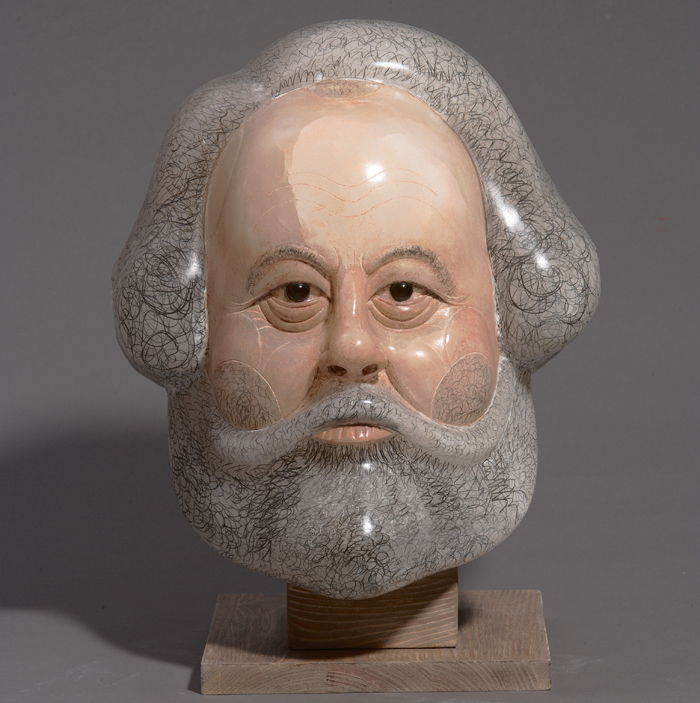

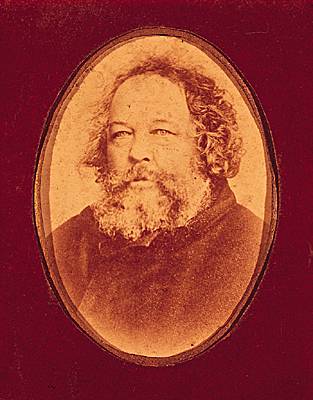

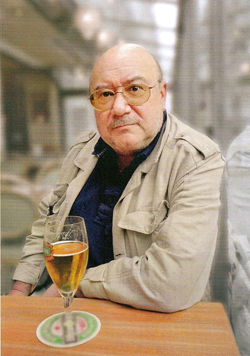



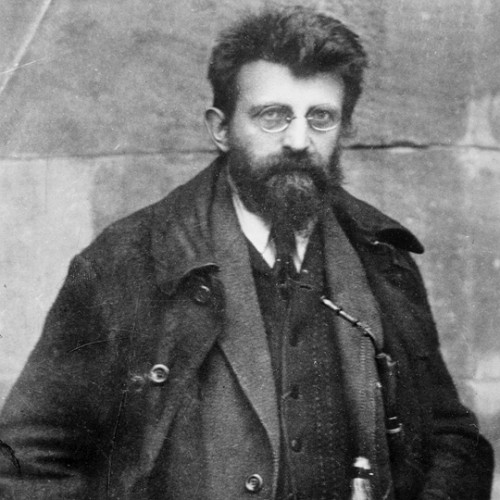
 John Zerzan is one of the leading advocates of the anti-civilization movement, communicating through speech, literature and action that modern society is unsustainable and harmful to our psychology and freedom. Following in the footsteps of Theodore Kaczynski, Zerzan is a radical anarcho-primitivist and believes that we must get rid of civilization itself, returning to a very simple lifestyle close to nature. His ideas confront commonly held beliefs about primitive people and about our path towards progress.
John Zerzan is one of the leading advocates of the anti-civilization movement, communicating through speech, literature and action that modern society is unsustainable and harmful to our psychology and freedom. Following in the footsteps of Theodore Kaczynski, Zerzan is a radical anarcho-primitivist and believes that we must get rid of civilization itself, returning to a very simple lifestyle close to nature. His ideas confront commonly held beliefs about primitive people and about our path towards progress. German anthropologist Hans-Peter Dürr made a study during the 80’s, which described primitive tribes in modern time displaying extreme social guilt over nakedness and sexuality. Aren’t there other countless examples of primitive tribes where social and cultural norms uphold power and gender structures as part of everyday life?
German anthropologist Hans-Peter Dürr made a study during the 80’s, which described primitive tribes in modern time displaying extreme social guilt over nakedness and sexuality. Aren’t there other countless examples of primitive tribes where social and cultural norms uphold power and gender structures as part of everyday life? You’ve said that the “symbolic thinking” of modern man, including language, mathematics and time, limits and oppresses our freedom. What do you believe led up to the development of these things—why did humanity choose civilization culture and not primitive culture? Do we have a choice at all?
You’ve said that the “symbolic thinking” of modern man, including language, mathematics and time, limits and oppresses our freedom. What do you believe led up to the development of these things—why did humanity choose civilization culture and not primitive culture? Do we have a choice at all? What changes do you want to see being implemented as a part of reducing the negative impacts of globalization?
What changes do you want to see being implemented as a part of reducing the negative impacts of globalization? Do you believe a collapse of the globalist order is inevitable, or is there a possibility for humanity to unite its best of minds and choose a different path?
Do you believe a collapse of the globalist order is inevitable, or is there a possibility for humanity to unite its best of minds and choose a different path?
Was kann eine Revolution entzünden? Um hierauf eine Antwort zu finden, schildert Manuel Ionas das Leben und die Gedankenwelt des russischen Anarchisten Peter Kropotkin.
Das revolutionärste Buch der Bibel ist ihr letztes, die Apokalypse des Johannes. In einer ekstatischen Schau wird der Seher Johannes Zeuge kommender, gigantischer Umstürze, welche die Autorität Gottes gegen alle anderen Autoritäten, allen voran Babylons, der Großen, durchsetzen. Alles Gute kommt von oben, und das Heil arbeitet sich durch ein monumentales Zerstörungswerk an allem Mächtigen und Festgefügten voran.
Bei Peter Kropotkin (1842-1921) und anderen namhaften Anarchisten kommt alles Gute von unten. Kein Gott kümmert sich um die Unterdrückten, kein Herr der Herren oder König der Könige auf Wolken wird es richten, sondern sie, die bis dahin passiv Hinnehmenden tun es selbst. Wollte man die anarchistische Bewegung als kirchliches Mysterienspiel persiflieren, so wäre der berserkernde Wander-Revolutionär Michael Bakunin (1814-1876) Johannes der Täufer, der wohlerzogene Peter Kropotkin wäre Paulus. Und der Heiland?
Der Welterlöser wäre die Revolution. Keine Gestalt, nicht einmal eine Lehre oder ein Dogma, sondern einzig und allein ein Ereignis wurde zum Hoffnungsträger hochstilisiert und messianisch erwartet. Man hat die anarchistische Bewegung gern als religiöses Phänomen gedeutet und (ab)gewertet. Sie galt strengen Kommunisten marxistisch-leninistischer Prägung gleichsam als die pubertäre Phase des Sozialismus. Noch der letzte große, marxistisch orientierte Geschichtsschreiber Eric Hobsbawm bewegte sich ganz in dieser Tradition. Schwer taten sich die Bescheid-Wisser der bolschewistischen Kaderpartei mit dem unbedingten Freiheitsdrang, der vermeintlichen Fortschrittsfeindlichkeit sowie vor allem der konsequenten Anti-Staatlichkeit der sozialistischen Stiefbrüder.
Was aber gerade der Anarchismus, der nie eine einheitliche, geschlossene Bewegung gewesen ist, uns Heutigen in puncto Revolution bzw. Revolutionserwartung zu sagen hat, soll im Fortgang dieses Artikels am Beispiel eines scharfsinnigen Pamphlets Kropotkins aus dem Jahr 1880 vor Augen geführt werden.
Freiwillig in Sibirien: Lehrjahre eines russischen Aristokraten
Der oben gewagte Vergleich Kropotkins mit dem Völkerapostel Paulus erklärt sich aus dem radikalen Bruch mit dem Herkunftsmilieu, den beide vollzogen haben, um allein ihrer Mission gegenüber loyal zu sein. Peter Kropotkin war Spross eines Zweigs der altrussischen Herrscherdynastie der Rurikiden und behielt trotz Bekehrung zum Anarchismus stets die feinen Manieren seiner Klasse bei.
In seiner Haftzeit in der berühmten Peter und Paul Festung erhielt er einmal hohen Besuch vom Bruder Zar Alexander II., Großfürst Nikolai, der mit eigenen Augen sehen wollte, dass ein Mitglied der Aristokratie und ehemaliger Page de Chambre des Zaren tatsächlich als Staatsfeind einsaß. Seine Abstammung sorgte anfangs auch für anhaltendes Misstrauen im sozialrevolutionären Tschaikowski Kreis in St. Petersburg, in den der 30-Jährige 1872 um Aufnahme gebeten hatte. In einem Brief von 1878 wird ihm übellaunig das Fehlen jeder Führungs- und Organisationsfähigkeit attestiert. Ein Fanatiker der Ideen sei er, so lautet das Verdikt eines Kampfgenossen über den ersten umfassenden Theoretiker anarchistischer Ideen.
Doch war Peter Kropotkin keineswegs ein Stubenhocker, der vor der Anschauung in die heile Welt der Theorie floh. Schon in jungen Jahren vollzog er einen Schritt der Emanzipation, der allenthalben für Kopfschütteln gesorgt hatte: 1862 ersuchte er um eine Versetzung in den Stab des Militärgouverneurs von Ost-Sibirien. Es war eine Flucht vor einer Karriere am Hofe des Zaren, zu dem er zuvor noch als Page aufgeblickt hatte, da Alexander II. als Befreier der Bauern galt. Es war aber auch eine Flucht vor dem allmächtigen Vater, der auf seinen Ländereien wie ein Kasernenkommandant regierte, obwohl er nicht einmal zu den grausamsten seiner Klasse gehörte. Bei den Bauern seines Vaters hatte der sensible Junge schon früh den Zusammenhalt und die menschliche Wärme einer unterdrückten Gruppe kennengelernt.
Diese Eindrücke vergaß er nie und nahm sie mit in die Amur-Region. Dort, entrückt von Zivilisation und Hofglanz, vollzog sich seine Bekehrung zu anarchistischen Grundideen. Später wird Kropotkin, der sich in dieser Zeit intensiv mit Geographie und Biologie beschäftigte, immer wieder auf soziale Phänomene in sibirischen Stammesgesellschaften wie auch in der Tierwelt zu sprechen kommen.
Bei den Tschuktschen im fernen Osten formten sich die Eckpfeiler seiner Überzeugungen, wie sie von Anarchisten vertreten wurden. Zu ihnen gehören: Tradition statt Zivilisation, Gemeinschaft statt Staat und Freiheit statt Autorität. Angeleitet vom ähnlich empfindenden Gouverneur, einem Sympathisanten Bakunins, und ergänzt durch Lektüre westlicher Philosophen vollzog sich in Peter Kropotkin die Wandlung zum libertären Revolutionär.
Rechts vor Links oder: Das Volk zuerst
Dass rechts auch da ist, wo der Daumen links ist, trifft bisweilen sogar auf dem Feld des ideologischen Kampfes zu, oftmals zur Überraschung der beteiligten Protagonisten. Nicht erst seit Karl Radeks Schlageter-Rede aus dem Jahr 1923, in welcher der originelle Bolschewik die national empfindenden Massen Deutschlands im Lager der Arbeit und nicht im Lager des Kapitals verortete, kann man bei antistaatlichen Revolutionären Schnittmengen ausmachen.
Und so nimmt es nicht Wunder, dass sich seit dem 19. Jahrhundert in den Chor sozialistisch-libertärer Stimmen auch Rufe nach nationaler Unabhängigkeit mischten. Kein Geringerer als Michael Bakunin war von den Slawophilen beeinflusst und sah, vereint mit allen russischen Revolutionären jeder Couleur, in Preußen-Deutschland das Symbol allen Übels, dessen ein Staat fähig war und dies, obwohl die Prägung durch den deutschen Idealismus auch bei ihm nicht wegzudenken ist.
Peter Kropotkin, dessen ideelle und geographische Wanderschaft ihn Anfang 1872 zur Jura-Föderation der Ersten Internationalen geführt hatte, zu der sich die anti-marxistischen Sozialisten zusammengeschlossen hatten, konnte dem nationalen Aufbegehren ebenfalls Positives abgewinnen.
Im Einklang mit seinen Überzeugungen von notwendiger Abschüttelung aller Autoritäten konnte er etwa 1897 zur angespannten Lage der Balkanvölker schreiben, dass der Befreiungskampf gegen eine auswärtige Tyrannei als Auftakt zur Befreiung von sozialen Tyranneien angesehen werden müsse. Dem Internationalismus erteilte er in einem anderen Schreiben eine Absage, solange nicht jede Nation wirklich unabhängig wäre. Freiheit galt für Individuen, Gruppen sowie für ganze Nationen. Nach anarchistischer Ansicht dürfte nicht einmal der Seele eine Herrschaft über den Körper (und umgekehrt) zugestanden werden. Einem vorauseilenden Kosmopolitismus wurde ebenso eine Absage erteilt, wie dem Imperialismus.
1880 erschien in der Genfer Zeitschrift Le Révolté ein Artikel Kropotkins, der später als Pamphlet in französischer Sprache herauskommen sollte. In ihm wird eine konzise Diagnose einer revolutionären Situation erstellt, die in vielem an unsere aktuelle Befindlichkeit erinnert. Dem naturwissenschaftlich interessierten und bewanderten Autor erscheinen Revolutionen wie Naturgewalten, die periodisch auftreten, alles mit sich reißen und ein neues Gleichgewicht herstellen. Ähnlich einer Krankheit geht ihnen eine Inkubationszeit voraus. In letzterer kommt es nach Kropotkin zu einer Art Umwertung aller bisher gültigen und anerkannten Werte.
Was früher Recht war, stellt sich nun als schreiendes Unrecht heraus. Die Untätigkeit der Regierenden beschleunigt diesen Prozess. Die Spannungen nehmen überall in der Gesellschaft zu und reichen bis in das Innere der Familien. Die soziale Zersplitterung schreitet voran und wird durch eine Ökonomie der fieberhaften Profitmaximierung gesteigert. Die Regierung ist schnell überfordert und wird von den Problemen überholt. Sie funktioniert allenfalls mechanisch und ist nicht einmal mehr in der Lage, offensiv reaktionär zu agieren.
Eine einzige missglückte Unterdrückungsmaßnahme
Jedes Entgegenkommen seitens der Herrschenden ist nun zu spät und stachelt das revolutionäre Fieber eher noch an. Die Massen beginnen, sich ihrer Stärke bewusst zu werden. Die Revolution bricht aus. Zwar glaubt Kropotkin, anders als der Psychologe Gustave Le Bon, dass auch in dieser Phase die meisten Menschen den Stimmen der Mäßigung zugeneigt sind, doch dauert dieses retardierende Moment des Aufruhrs nicht allzu lang. Die warnenden Stimmen nämlich haben seit je her die kleine mutige Elite diskreditiert, die auf dieses Ereignis hingearbeitet hat, ohne dass jemand ernsthaft Notiz nahm.
Nach seiner Meinung genügt in dieser Situation nur eine einzige verunglückte Unterdrückungsmaßnahme seitens der Regierung, um den Revolutionären die Sympathien der Massen zu garantieren. Der Stachel der Revolution bohrt sich nun unaufhaltsam bis in die herrschenden Klassen hinein, deren Einheit nun zerbröckelt. Peter Kropotkin ist davon überzeugt, dass diejenige Partei in einer Revolution Gehör findet, die am meisten und am härtesten für sie gearbeitet hat. Aus ihren Reihen kommen die wenigen Mutigen, die eine Masse von bis dahin Ängstlichen mitreißen können, denn, so sein Credo „Mut, Hingabe und Opferbereitschaft sind ebenso ansteckend, wie die Feigheit“ (Peter Kropotkin „The spirit of revolt“).